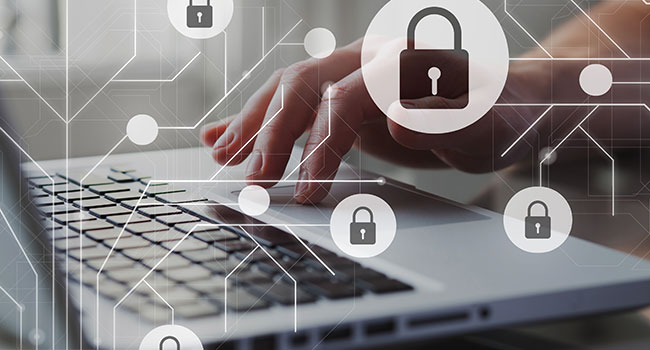
How to Fix Common Data Security Mistakes
- By Jerry Hsieh
- Jun 02, 2022
Your favorite bagel shop may have an amazing selection of sesame, garlic, parmesan, and blueberry bagels, friendly customer service, and that quirky vibe that you love. But it may not have the much-needed security in place to protect them and you against cybercrime. The damaging effects of cyber threats like malware, phishing, and ransomware on a small business can put sensitive and personal data of employees and customers at risk — not to mention vendors and everyone in the supply chain.
In fact, 60% of small companies go out of business within six months of falling victim to a data breach or cyberattack. Small to medium-sized businesses (SMBs) face the same type of cyberattacks as their larger counterparts but are more vulnerable because they often lack a robust cybersecurity infrastructure, internal security support, and technology know-how. The evolution of the digital landscape and the effects of the pandemic have unfortunately made smaller organizations the perfect target for cyber criminals. And it’s a big problem — according to the Small Business Administration, there are 32.5 million small businesses with less than 500 employees in the U.S.
A hole in a bagel is acceptable, but a security hole could be a recipe for disaster. Considering how much data a small business has that could potentially be compromised — financial information, customers’ credit or debit card numbers, personal identification numbers, passwords, or customers’ personal information (name, address) from loyalty programs — it might be time to shore up security efforts.
Eight Common Data Security Mistakes and How to Fix Them
Fortunately, common data security mistakes are easily remedied without adding headcount or much cost:
1. Treating all data equally. Often, businesses don’t know what to protect. Understanding the value of different types of data will help with a corresponding data security strategy. Once you determine your most sensitive data, encrypt it — this makes it unreadable if compromised. Many small businesses look to full-disk encryption obtained through built-in programs or third parties.
2. Setting up Wi-Fi yourself. Offering secure, reliable Wi-FI for customers can help you with repeat customers and Yelp reviews. But a poorly configured Wi-FI could provide an opening for cyber thieves. Look to experts to help you strategically plan, configure, and install the right equipment.
3. Misconfiguring a Virtual Private Network (VPN). Similarly, consult experts to help with your VPN. Traditional VPNs do not have adequate control over who or what device can connect to the network. It is often exploited because there is no standard way to set it up, operate, or distribute access. Organizations may want to look to an expert to ensure the access channel is secured to protect data and confidentiality.
4. Trying to handle security yourself. With limited people and budget, consider outsourcing security to service providers with the specialized knowledge to properly configure and keep your systems and applications safe. A trusted and experienced third party can manage this for you so that you won’t overlook some of the key security features.
5. Not prioritizing employee security training. Humans are the weakest link in cybersecurity. Most compromises are caused by a simple error such as an employee clicking on a harmful link. Training employees on good security practices, such as two-factor authentication, will go a long way to greatly reduce cyber threat risks.
6. Relying on old technology. Many companies rely on outdated, legacy systems to save costs. Legacy applications rely on older, more limited frameworks, software libraries, and operating systems, presenting more security issues. Modern applications are better integrated with newer frameworks and platforms and have built-in security features to reduce the chance of data compromise.
7. Skipping data backup. Many businesses, large and small, often overlook this critical step. A frequent backup strategy is essential, especially to protect financial data, intellectual property, source code, and email. A good plan is to start backing up your mission critical data first.
8. Forgetting software patches. Don’t leave your organization and employees vulnerable when security updates and patches are readily available for everything from operating systems to applications to devices.
Most companies don’t need a complete security overhaul. A few measured, practical steps can make a big difference in helping small businesses protect their data, systems, reputations, and livelihoods. While your favorite bagel shop may have already perfected the chewy bagel, a few adjustments to security practices may be on the menu.